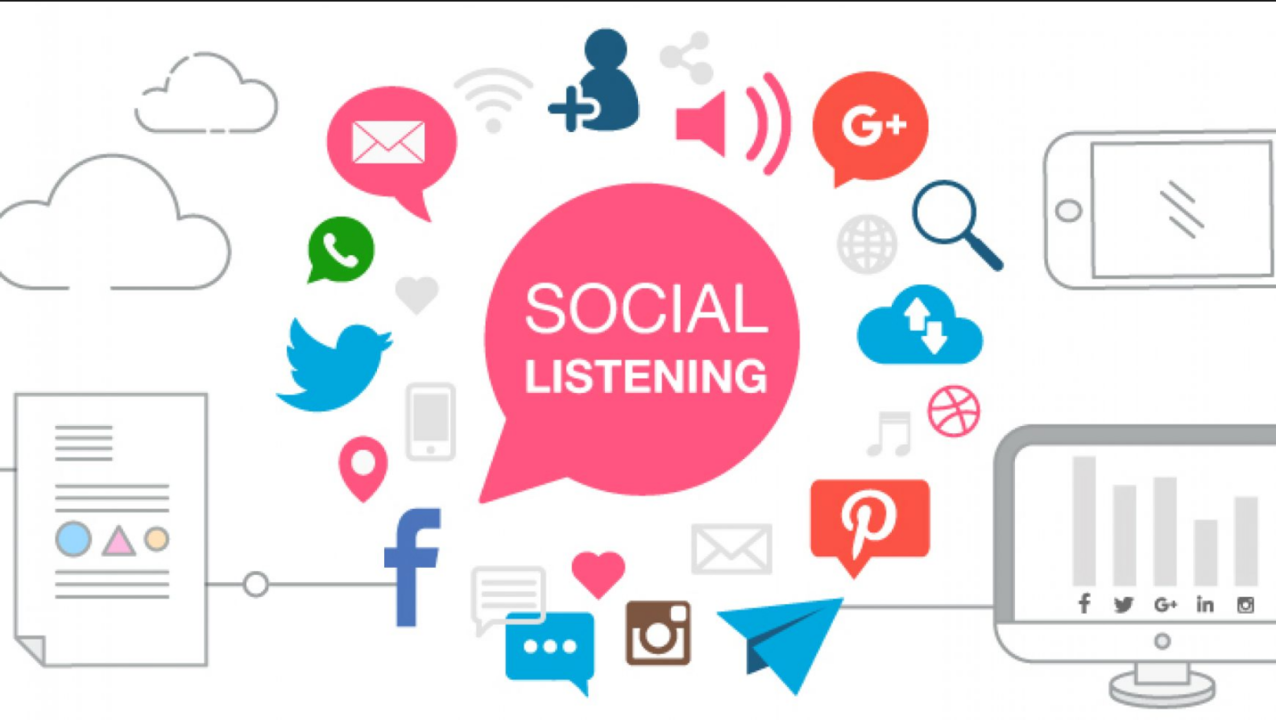In the dynamic landscape of the digital world, social listening has emerged as a crucial tool for businesses and individuals alike. It involves monitoring and analyzing online conversations and discussions across various social media platforms. The insights gained from social listening online can shape marketing strategies, enhance brand reputation, and foster better engagement with the audience.
Why Social Listening Online Matters

Understanding audience sentiment is at the heart of social listening. By gauging how people feel about a brand or topic, businesses can tailor their approaches to meet consumer expectations. Monitoring brand reputation ensures that companies can respond promptly to issues and crises, mitigating potential damage. Additionally, social listening helps in identifying trends and opportunities in the market, allowing for strategic planning.
Social Media Listening Tools
Numerous tools facilitate effective social listening. From industry giants like Hootsuite and AIM Insights to specialized tools like Mention and Talkwalker, the options are diverse. Choosing the right tool depends on factors such as the scale of monitoring, specific goals, and budget considerations.
Setting Up Your Social Listening Strategy
To harness the power of social listening, a well-defined strategy is crucial. This includes setting clear goals, selecting relevant keywords, and establishing a monitoring schedule. By doing so, businesses can streamline their efforts and extract meaningful insights from the vast pool of online conversations.
Analyzing Social Media Conversations
Interpreting data and insights obtained through social listening online is an art. Brands must not only understand what is being said but also respond appropriately to customer feedback. This dynamic interaction fosters a sense of connection and trust with the audience. Regularly adjusting strategies based on social listening findings ensures that businesses stay relevant and responsive.
Competitor Analysis through Social Listening
Social listening is not limited to self-analysis. Understanding competitor actions and reactions provides a valuable competitive edge. By learning from the successes and failures of others, businesses can refine their strategies and stay ahead in the digital race.
Social Media Listening in Crisis Management
In times of crisis, social listening becomes a lifeline for effective public relations. By monitoring online sentiments during challenging situations, businesses can tailor their responses and navigate crises successfully. Real-life case studies demonstrate how proactive social listening has saved brands from PR nightmares.
The Impact on Content Creation
Tailoring content to match audience preferences is a direct result of social listening. By understanding what topics resonate with the audience, businesses can create more engaging and shareable content. Social listening also serves as a wellspring for content ideation, ensuring that brands stay creative and relevant.
Measuring Social Listening ROI
Establishing key performance indicators (KPIs) is essential for measuring the success of social listening efforts. Whether it’s increased brand mentions, improved sentiment, or higher engagement rates, businesses need to define metrics that align with their goals and objectives.
Challenges
While social listening online offers immense benefits, it comes with challenges. Dealing with misinformation and addressing data privacy concerns are critical aspects that businesses must navigate. Striking the right balance ensures that social listening remains a powerful and ethical tool.
Future Trends
As technology advances, so does social listening. The integration of artificial intelligence (AI) and machine learning is shaping the future of this practice. Evolving strategies are necessary to adapt to the changing online landscape, ensuring that businesses stay ahead in the digital evolution.
Tips for Effective Social Listening
Staying proactive and adaptive is the key to effective social listening. Engaging with the audience authentically, responding promptly to feedback, and actively participating in online conversations contribute to building a strong online presence.
Common Mistakes to Avoid
Neglecting real-time monitoring and ignoring valuable feedback are common mistakes in social listening. Businesses must recognize the importance of staying vigilant and responsive to the ever-changing digital landscape.
Conclusion
In conclusion, social listening online is not just a trend; it’s a necessity in the digital age. The insights gained from monitoring online conversations empower businesses to make informed decisions, enhance brand image, and foster meaningful connections with their audience. By integrating social listening into their strategies, businesses can navigate the complexities of the digital realm with confidence and agility.
Ready to unlock the power of social listening for your business? Request a demo from AIM Technologies today and revolutionize your online presence.
FAQs
How often should I engage in social listening?
- The frequency depends on your goals and the nature of your business. Regular monitoring is advisable, especially during product launches or PR crises.
Can social listening tools replace human intuition?
- No, while tools provide valuable data, human intuition adds the necessary context and understanding to interpret the information effectively.
Are there free social listening tools available?
- Yes, some tools offer free versions with limited features. However, for comprehensive insights, investing in a premium tool is recommended.
How do I handle negative feedback obtained through social listening?
- Address negative feedback promptly and professionally. Use it as an opportunity to showcase your commitment to improvement.
Is social listening only for big businesses?
- No, social listening is beneficial for businesses of all sizes. It provides valuable insights and helps in building a strong online presence for any brand.




